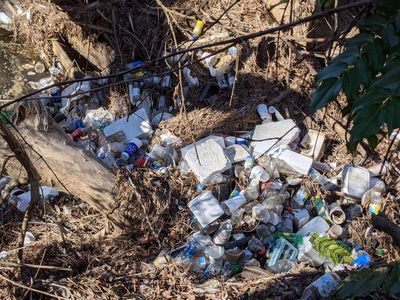Virginia General Assembly delays ban on foam cups and takeout containers
Our bill to ban polystyrene cups and takeout containers was not enacted this year. It passed out of the House and nearly made it through the State Senate. But at the eleventh hour, several Senators added an amendment that requires the bill pass again next year before it can become law.
Our bill to ban polystyrene cups and takeout containers was not enacted this year. It passed out of the House and nearly made it through the State Senate. But at the eleventh hour, several Senators added an amendment that requires the bill pass again next year before it can become law.
Members of the conference committee were unable to resolve the differences and eventually decided to “pass” the bill — with the delayed enactment. All in all, it means our fight to protect Virginia’s wildlife from this dangerous pollution continues one more year.
This is obviously disappointing. We’ve been working on this issue for two years and to get this close and not win stings.
But we’re not done. We’ll be back in the legislature next year. And this experience has underscored a couple key points we’ll make sure to emphasize going forward.
First, recycling isn’t a cure-all. This might be hard to hear — after all, environmentalists love recycling. And for some products, like glass bottles, aluminum cans and paper, it’s a must. But recycling isn’t always the answer. Officials in New York City thought it was. They conducted a five year study on advanced foam recycling, only to conclude it was economically or environmentally infeasible. The Big Apple banned the material last year. The lure of recycling, even if it’s proven ineffective for this material, was enough to convince several Northern Virginia Senators to not enact our bill. We’ll continue to educate them and you should feel free to contact them over the next 10 months.

Reedy Creek in south Richmond, filled with polystyrene takeout containers (and other items).
Second, the specific type of material matters. Even if recycling worked, successful recycling programs rely on collection. What makes us think that all the polystyrene containers littering Virginia’s streams that weren’t put into garbage cans will suddenly be thrown into recycling bins? Polystyrene (most commonly referred to as Styrofoam) is the most frequently observed plastic litter. We simply shouldn’t produce some of the most dangerous types of products to begin with.
We do want to take a minute to thank the thousands of people that helped us get this far. First Delegates Krizek (D- Fairfax County) and Plum (D- Fairfax County) for introducing foam ban legislation and their leadership on this issue. And Delegate Carr (D- Richmond) for seeing this bill through the General Assembly and her ongoing advocacy for the environment.
Second, to our supporters. Over the past two years, we’ve spoken with over one hundred thousand residents of Virginia. Nearly 50,000 of you have taken the time to sign our petition either at the door, on the street or in an email. Thousands more have donated and hundreds of you placed calls to delegates and senators. And dozens of canvassers have trapsed the neighborhoods of our state, knocking on doors and waving people down to organize this incredible level of support. To all of you, we say “Thank you, thank you and thank you again.”
Onward and upward.
HELP US GET NEXT YEAR’S CAMPAIGN JUMP STARTED NOW BY MAKING A DONATION HERE.
Authors
Elly Boehmer
State Director, Environment Virginia
A former canvass director and organizer with Impact, Elly now directs Environment Virginia's efforts to promote clean air, clean water and open spaces in Virginia. Elly lives in Richmond, Virginia, where she enjoys gardening, photography, hiking and rollerblading with her dog.

